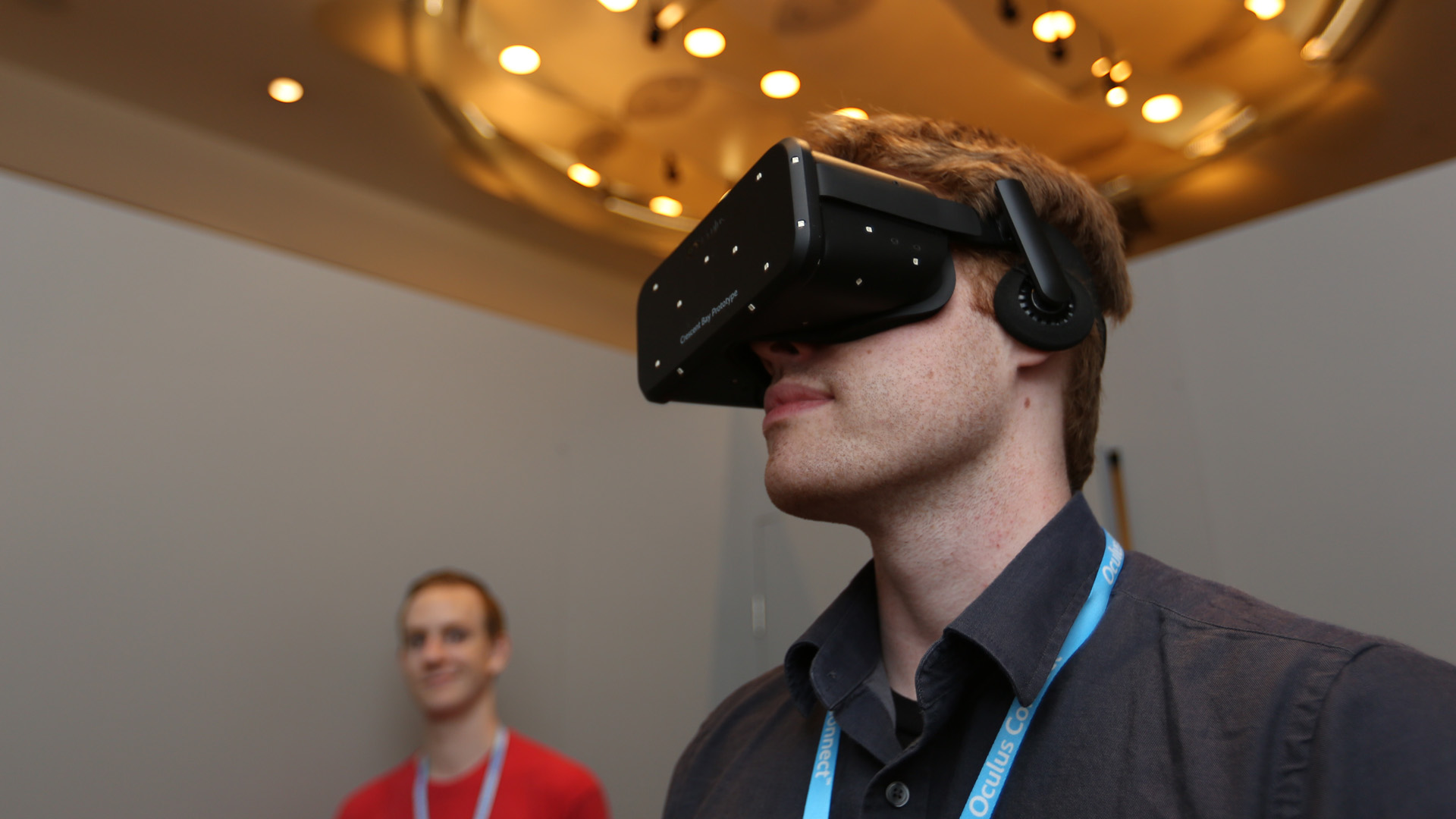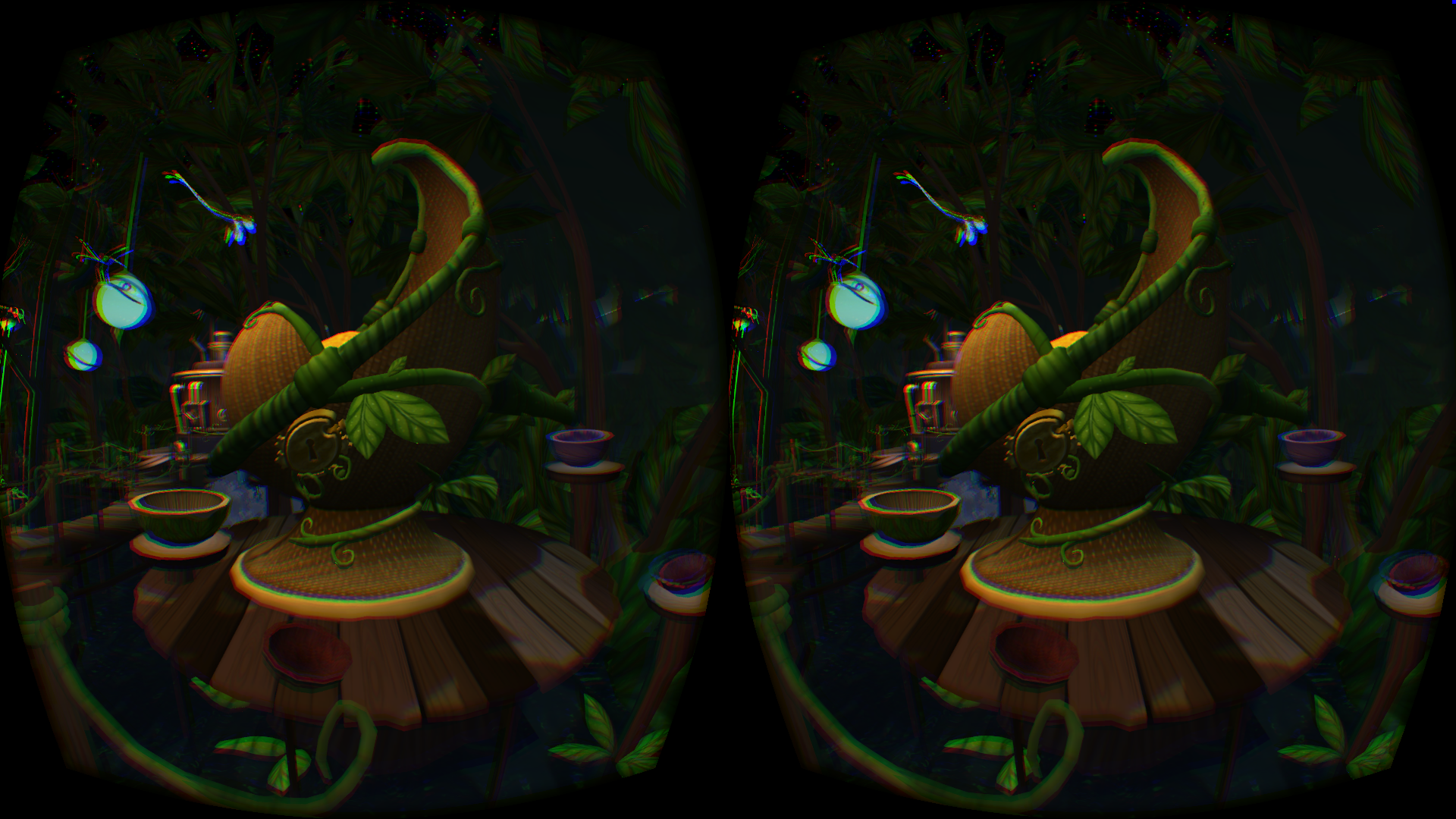What should I consider when building a PC for the Oculus Rift?

Ask PC Gamer is our weekly question and advice column. Have a burning question about the smoke coming out of your PC? Send your problems to letters@pcgamer.com.
Building a new beefy PC soon. Do I need to calculate anything extra in if I plan to eventually get Oculus? — Rob
Hey, Rob! If your new PC is beefy like you say, you're probably on track for a good VR machine, but we really don't know for sure just how high-end of a machine we'll need.
For now, you want a rig that can run 1080p stereoscopic games at 70fps or higher, as the latest Oculus Rift dev kit delivers a resolution of 960x1080 in each eye. We expect the consumer version of the Rift to be higher-res, though we don't have the final specs. Don't necessarily break the bank with dual-GTX 970s just yet, but do build with potential upgrades in mind.
Back in 2013, Oculus VP of Product Development Nate Mitchell talked a bit about this. "You'll want a decent gaming rig," he said, "because you want to be running at 60 frames per second, with vsync, in stereo 3D, and that takes a decent graphics card. The Oculus SDK really adds negligible overhead. There's not really any more overhead for rendering for our device, or anything like that. The onus is really on game developers to optimize their engines to be running at 60 frames per second."
More recently, Mitchell told us that their Crescent Bay demos were running on GTX 980s, and beyond 60 fps. "The demos are running at 90Hz," he said. "That really becomes the gating factor here. For that 90 frames per second, in UE4 where we're doing a lot of complex artwork and trying to render complex scenes, they're high end GPUs. They're high-end systems. i7s. You're going to need a high-end computer for that sort of experience."

I think that, if you're building a good PC now (let's say, a Core i5-4690K/Core i7-4790k, 8-16 GB RAM, and a GTX 970), you'll probably be OK. Oculus is tempering expectations by calling for super high-end machines, but there's also pressure on devs to build well-optimized VR games that don't require dual-980s (I imagine they want a larger audience than that). Some of the Rift games in development now—Eve: Valkyrie, for instance—have been in development for a year or more, running fine on older specs. Star Citizen may push your system, but it was always going to, wasn't it?
Additionally, I've noticed that super high-fidelity graphics aren't necessary to create the feeling of 'presence' that makes VR so special. I'm betting there'll be plenty of VR experiences that don't look like Alien: Isolation, but are still great and don't require more than a new mid-range system. This is only somewhat speculative, as I've tried several Unity engine demos with a Core i5-3570 and GTX 480 with no problems. Of course, if you want the best—those UE4 games at 90Hz that Mitchell mentioned—you'll have to go as high-end as you can. We'll know for sure what you'll need when we're actually playing games on the consumer Rift.
The biggest gaming news, reviews and hardware deals
Keep up to date with the most important stories and the best deals, as picked by the PC Gamer team.
To play it perfectly safe and keep from having to upgrade when the Rift releases, the only thing to do is wait. According to Road to VR, there are indications that hardware manufacturers are working on VR optimizations, but we can only speculate as to what they are and how important they'll be. I think that, as Mitchell said back in 2013, the onus is mostly on software designers to make their games run at 60 fps on as wide a hardware range as possible. But do be prepared for the possibility that some fantastic new Intel, Nvidia, and AMD tech may appear around the same time as the Rift consumer version.
The final consideration is your physical setup. You want lots of space to swivel and move, and you'll need the head-tracking camera mounted on your monitor or a stand, and Oculus recommends you sit 1.5 meters or 5 feet away for optimal performance. So, don't put your PC in a closet and you should be fine.

Tyler grew up in Silicon Valley during the '80s and '90s, playing games like Zork and Arkanoid on early PCs. He was later captivated by Myst, SimCity, Civilization, Command & Conquer, all the shooters they call "boomer shooters" now, and PS1 classic Bushido Blade (that's right: he had Bleem!). Tyler joined PC Gamer in 2011, and today he's focused on the site's news coverage. His hobbies include amateur boxing and adding to his 1,200-plus hours in Rocket League.

